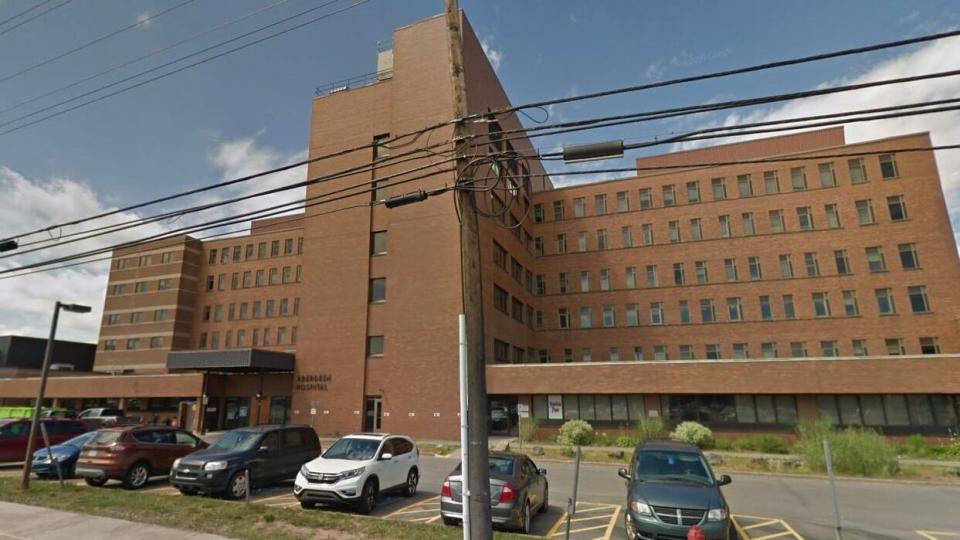Trying to cut ER wait times, N.S. adds fast-track option to some hospitals

Nova Scotia's health authority is "digging into" the problem of long waits in the emergency department, and says even if wait times don't budge, new measures should improve the patient experience at the ER.
One of those measures is the rapid assessment zone, which includes a secondary waiting room connected to the ER where multiple patients can be managed at the same time.
Patients who can move around on their own and whose health care needs are relatively low in urgency and complexity are sent to these zones. They can access private rooms when needed, but head back to the zone waiting room between assessments and diagnostic imaging or lab results.
The model allows clinicians to spend time with several patients, rather than seeing one after the other. Traditionally, once a patient gets a private room, they stay there until they're discharged and the next patient can't see a physician until the room is free.
Emergency departments at the Colchester East Hants Health Centre and the South Shore Regional Hospital gained rapid assessment zones earlier this year, and the Aberdeen Hospital will get one this month.
The Halifax Infirmary and the Valley Regional Hospital have had rapid assessment zones for several years.
"We're seeing some really good success," said Tanya Penney, the executive director of emergency care priorities at Nova Scotia Health.

Tanya Penney, senior executive director of emergency care at Nova Scotia Health, says the health authority is approaching the problem of long wait times in emergency departments from multiple angles. (CBC)
She could not immediately provide data demonstrating those successes, but she said the literature on rapid assessment zones, which are used across North America, show the difference the fast-track option can make for patients.
She said in other hospitals, the rate of patients who leave the ER without being seen has dropped by 30 to 50 per cent with the introduction of rapid assessment zones.
Penney said most rapid assessment zones in Nova Scotia operate 12 to 16 hours a day, during times when ERs typically see the most patients who fit that type of care.
17-hour wait with sick baby
Hearing about changes coming to her nearest ER was intriguing to Amber Clark, who recently waited for 17 hours before seeing a physician at the Aberdeen.

Amber Clark and her son, Sawyer, arrived at the Aberdeen emergency department at noon one day last month, and didn't see a doctor until 5 a.m. the following day. (Amber Clark)
Clark said her 10-month-old son, Sawyer, was sick with a fever and chest congestion. She said a week went by and his symptoms were worsening, so she called 811, Nova Scotia's non-emergency health information line.
"They suggested the ER because his breathing was a concern," she said.
"I packed a bag thinking, OK, let's plan for the worst-case scenario.... So I brought enough milk and diapers and all that for eight hours thinking, 'OK, a sick baby, he'll never be there that long, but let's prepare.'"
Clark said they arrived at the Aberdeen ER around noon, and the hours started ticking by.
Stayed because of tragic story
She said she considered leaving many times, especially as she started running low on milk and diapers in the middle of the night, but her mind kept returning to the story of a six-year-old Dartmouth boy who died in March of invasive group strep A.
The boy had been sick for a couple days with a fever and cough, and his father said the family considered going to the ER, but didn't because they didn't want to put their son through a potentially hours-long wait.
The child died in his sleep and his parents found him the next morning.

The Aberdeen Hospital in New Glasgow, N.S., will be the fifth hospital in Nova Scotia to get a rapid assessment zone. (Google Maps)
Following the boy's death, the father encouraged other parents to take their children in to be checked by a doctor, no matter how long the wait might be.
"I stayed because of that family speaking out about their tragedy," said Clark. "It really hit home with me."
Clark said Sawyer was finally assessed by a physician around 5 a.m., the day after they first arrived, and was diagnosed with bronchitis. She said he was treated with a steroid and sent home with a prescription for more medication to be administered at home.
Skeptical of promises for change
Clark had no complaints about the clinicians at the Aberdeen or the care that Sawyer ultimately received, but she said the wait was horrible, and made her highly skeptical of the government's claim that it is focusing on health care.
"We're supposed to be getting better at things and making improvements. I don't see it," said Clark.
"This is absolutely disgusting, disgraceful health care."
As for the rapid assessment zone coming to the Aberdeen, Clark said she would wait and see.
"I haven't seen the changes yet, but it definitely piques my interest."
Penney said an ER wait as long as the one Clark experienced "happens too frequently."
Penney said the health authority is looking at many different ways to move patients through the system faster. In addition to rapid assessment zones, she also pointed to the addition of physician assistants, nurse practitioners, patient advocates and waiting room care providers.
She said those things should, at least, bring more comfort to people in the waiting room.
"We're really digging into those pieces to make sure that we decrease wait times for Nova Scotians."
MORE TOP STORIES

